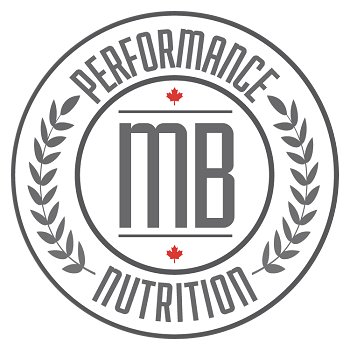Last updated on January 11th, 2024
The use of tart cherry juice has become increasingly popular in both elite athletes and the general public. However, the use of supplements and ergogenic aids in the general public often have little or no scientific evidence to back up the current research available.
Over the last 10 years there have been an increasing number of studies carried out to investigate the potential effect of tart cherry juice on various areas of performance including muscle damage, sleep, pain, vascular function and antioxidant activity. The following review summarises the current research carried out on tart cherry juice and its effects in an athletic population.
Research shows tart cherries contribute and contain high levels of antioxidants such as melatonin, carotenoids, hydroxycinnamates, and several flavonoid groups including anthocyanins, as well as the flavanol quercetin. These antioxidants are found in both tart cherries and sweet cherries, but most research studies have used Montmorency cherries.
It is also important to note that the time of year the cherries are picked, the dose of cherries ingested and the Host (e.g. the gut microflora) will change how they affect each individual athlete.
Participating in exercise causes oxidative stress, decreased muscle force production and inflammation. The high volume of antioxidants in cherry juice have been shown to help reduce muscle damage, reduce levels of pain in athletes and to help improve recovery.
How? Studies have concluded that when supplementing with tart cherries it can reduce the effects of the damage caused after exercise and also help reduce the subsequent strength loss after physical activity. It has also shown to prevent muscle damage by improving blood markers which may in turn promote faster recovery. Therefore, tart cherry juice does not only help prevent the damage after eccentric exercise but can limit the increase in inflammation and oxidative stress, which will promote faster more effective recovery.
Therefore, it can be said that the priority when it comes to cherry juice supplementation is not about the adaptations that it is going to give but the effects that it will have on the athlete’s recovery.
In Marathon running, improvements in isometric strength recovery have also been found following the consumption of tart Montmorency cherry juice supplementation vs placebo. How does this happen? So studies have shown that whether you are taking cherry juice or a placebo the initial force is not depleted but if we can reduce the secondary force production and ongoing damage then athletes can maintain a higher level of force production. Recovery is also affected, which points towards protection from secondary damage responses.
Cherry Juice has also shown significant improvements in sleep onset and sleep onset latency and also in total sleep efficiency (reduction in naps and reduction in sleep onset latency), this is also beneficial as much of the recovery process happens when athletes sleep, and when most of the essential muscle building (muscle protein synthesis) occurs.
From a nutritionist’s point of view, any food product would be generally recommended and favourable over an ergogenic aid, as most nutritionists look for a ‘food first’ and ‘food is fuel’ approach when it comes to the athlete.
It can be hypothesized from the current research available that any high-level athlete who wants to improve their chances of improved performance without the risks and side effects, tart cherry juice is a natural food that might help.
If the supplement is taken at the right time around training, it could give the athlete the improvement that they seek without the side effects and the possibility of testing positive for illegal performance-enhancing drugs.
Although, more research needs to be done to investigate the effect of concentrate versus non-concentrate cherry juice and the efficiency of liquid vs powdered cherry juice. Overall, the ingestion of natural whole food products over artificial and processed foods can not be implemented enough in athletes when it comes to getting that edge over competitors.
In conclusion, it appears that Tart Cherry Juice has significant anti-inflammatory and antioxidant effects with promising results for athletes.
Based on the available research, it is suggested that 8 to 12 oz of tart cherry juice (1 oz of concentrate) consumed twice daily at least 4 days before, day of, and 2 days after performance/competition may be beneficial. Although, further research needs to be carried out to recommend an optimal dose.
References:
McHugh, M., 2011. The health benefits of cherries and potential applications in sports. Scandinavian Journal of Medicine and Sciencein Sport, 21(5), p.615.
Connolly, D.A.J., McHugh, M.P. and Padilla-Zakour, O., 2006. Efficacy of a tart cherry juice blend in preventing the symptoms of muscle damage. British journal of sports medicine, 40(8), pp.679-683.
Ducharme, N.G., Fortier, L.A., Kraus, M.S., Hobo, S., Mohammed, H.O., McHugh, M.P., Hackett, R.P., Soderholm, L.V. and Mitchell, L.M., 2009. Effect of a tart cherry juice blend on exercise-induced muscle damage in horses. American journal of veterinary research, 70(6), pp.758-763.
Traustadóttir, T., Davies, S.S., Stock, A.A., Su, Y., Heward, C.B., Roberts, L.J. and Harman, S.M., 2009. Tart cherry juice decreases oxidative stress in healthy older men and women. The Journal of nutrition, 139(10), pp.1896-1900.
Howatson, G., McHugh, M.P., Hill, J.A., Brouner, J., Jewell, A.P., Van Someren, K.A., Shave, R.E. and Howatson, S.A., 2010. Influence of tart cherry juice on indices of recovery following marathon running. Scandinavian journal of medicine & science in sports, 20(6), pp.843-852.
Kuehl, K.S., Perrier, E.T., Elliot, D.L. and Chesnutt, J.C., 2010. Efficacy of tart cherry juice in reducing muscle pain during running: a randomized controlled trial. Journal of the International Society of Sports Nutrition, 7(1), p.17.
Vitale, K.C., Hueglin, S. and Broad, E., 2017. Tart cherry juice in athletes: a literature review and commentary. Current sports medicine reports, 16(4), pp.230-239.
Bowtell, J.L., Sumners, D.P., Dyer, A., Fox, P. and Mileva, K.N., 2011. Montmorency cherry juice reduces muscle damage caused by intensive strength exercise. Medicine & Science in Sports & Exercise, 43(8), pp.1544-1551.
Howatson, G., Bell, P.G., Tallent, J., Middleton, B., McHugh, M.P. and Ellis, J., 2012. Effect of tart cherry juice (Prunus cerasus) on melatonin levels and enhanced sleep quality. European journal of nutrition, 51(8), pp.909-916.
Howatson, G., McHugh, M.P., Hill, J.A., Brouner, J., Jewell, A.P., Van Someren, K.A., Shave, R.E. and Howatson, S.A., 2010. Influence of tart cherry juice on indices of recovery following marathon running. Scandinavian journal of medicine & science in sports, 20(6), pp.843-852.


